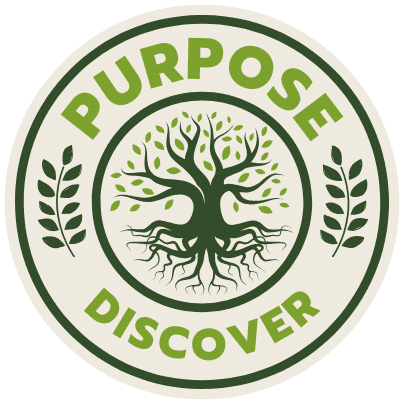There’s something wild about the idea of calling—the kind of deep, gut-level pull toward a certain path or purpose. It’s like an internal compass that doesn’t always make sense on paper but feels undeniable in the marrow. Trouble is, following that calling often demands a kind of courage that most people don’t talk about enough. It’s not just about being brave in the usual sense; it’s a raw, stubborn grit that shows up when everything in your world screams for you to take the easy road instead.
Think about the last time you stood at a crossroads. Maybe it was a big decision, like changing careers or moving cities. Or maybe it was a smaller but no less meaningful choice—pursuing a passion project when your friends thought you were nuts or speaking your truth in a room full of skeptics. That hesitation, that fire in your belly, that pounding heartbeat? That’s where calling and courage intersect. One fuels the other, and without courage, calling can feel like a cruel joke.
What makes courage so essential here? Because calling almost always involves risk. It’s stepping into unknown territory with shaky legs and a hopeful heart. The calling tempts you to leap, but the fear of falling keeps you frozen. Courage isn’t the absence of fear—it’s that stubborn refusal to let fear win. It’s the whisper that says, “I don’t know what comes next, but I’m doing it anyway.”
This is where many people get stuck. They sense their calling but let doubt or societal pressure smother it. Maybe they convince themselves it’s impractical, selfish, or just plain unrealistic. It’s easier to settle for comfort than to wrestle with uncertainty. Yet, when you do summon the courage to move toward your calling, something extraordinary happens. The fear doesn’t vanish, but it loses its power over you. You begin to trust yourself more deeply, and the world starts to shift in subtle, surprising ways.
I’ve noticed that courage linked to calling isn’t always loud or dramatic. Sometimes it’s quiet, a steady hum beneath the surface—waking up every morning and choosing to show up for what matters, even when the applause isn’t guaranteed. It’s in those small acts of defiance against doubt and conformity that real bravery lives. The person who paints, writes, or teaches despite a chorus of “you can’t” voices is a hero in their own right. That courage adds up, day after day, until it becomes a force that reshapes their entire life.
Here’s a tricky thing: calling doesn’t always reveal itself in grand flashes of inspiration. Sometimes it sneaks up on you like a flicker in the corner of your eye, or it sounds like the quiet voice of dissatisfaction with your current life. That’s where courage earns its stripes again—when you listen closely, even though it’s uncomfortable to feel that tug. It takes guts to admit you’re not where you want to be, to start asking the tough questions, and then to seek answers that might upend your status quo.
I’ve spent hours poking through that discomfort myself. The courage to confront my own restlessness was like lifting a heavy weight off my chest, but also like stepping into a storm without an umbrella. It’s scary, but that storm is where growth happens. It’s where you meet the real you—the one not shaped by other people’s expectations but by your own deepest truths.
Now, don’t get me wrong. Following your calling isn’t some romanticized magic pill that guarantees happiness or success. It’s messy, unpredictable, and sometimes you’ll want to throw in the towel. Courage doesn’t mean you won’t fail; it means you’ll fail and keep going anyway. That’s the secret sauce. Every story of someone who’s “made it” has chapters full of doubt and setbacks. The thread that ties all those stories together is courage—steady, relentless, and a little bit stubborn.
If you’re wondering how to cultivate this kind of courage, start by honoring your calling even when it feels fragile or faint. Write it down. Talk about it with people who get it. Take small, concrete steps toward it every day, no matter how tiny. Courage loves momentum. It’s like a muscle—you strengthen it through use. The more you act on your calling, the easier it becomes to push past fear.
Sometimes, courage means saying no to what everyone else expects and yes to what only you can do. That can feel isolating, but it’s in that solitude you discover your own voice. And that voice, when unleashed, has power. It invites others to live more authentically too. It creates ripples. There’s a beautiful chain reaction: your courage lights a spark in someone else’s heart, who then finds their own courage to follow their calling. It’s contagious in a way that’s both humbling and exhilarating.
If this sounds like a journey you’re ready to explore, there’s a wealth of insights out there about purpose and courage that can guide you. One place I find particularly inspiring is this conversation about discovering your unique reason for being: a site dedicated to helping people uncover their true life purpose. It’s not about quick fixes but about deep digging and honest reflection—a perfect companion for anyone standing at the edge of their own calling.
I’ll leave you with this: calling and courage are not separate. They are two sides of the same coin. You can’t have one without the other. When that call comes knocking, don’t just listen—answer, even if your hands tremble. Because waiting for perfect bravery is a trap. Real courage is imperfect, messy, and beautiful. It’s the leap you take with your eyes wide open, knowing the landing might be shaky but trusting that you’ll figure it out along the way. After all, isn’t that what makes life worth living?

